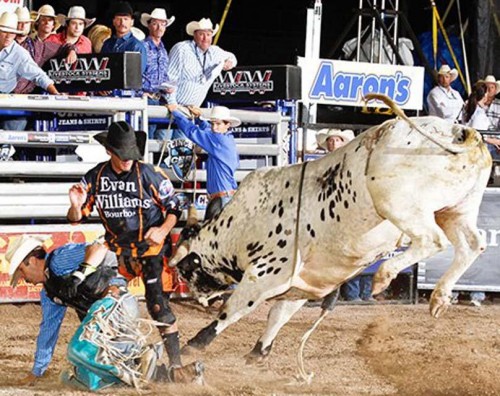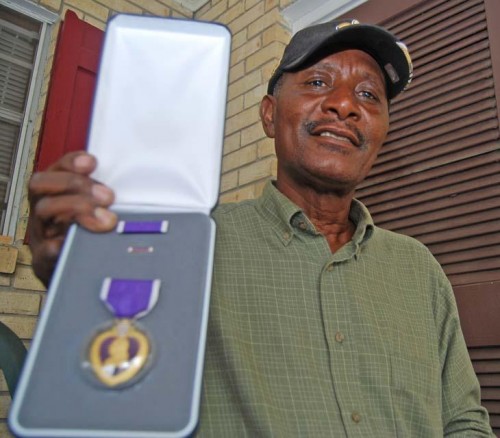
‘8 Seconds to Glory’
November 4, 2011Tuesday, Nov. 8
November 8, 2011Tyrone Turner Sr. remembers the chilling details of when he expected his life to end, a five-minute period of his existence marked externally by hysterics and internally by a suffocating fear.
Turner, who received a Purple Heart for his U.S. Army service during the Vietnam War, couldn’t recall many fond memories from the year he spent in the jungles of ‘Nam, a duty he was drafted into six days after he graduated Houma’s Southdown High School in 1969.
Turner, now 62, began his military service at Fort Polk, La., where he underwent basic training and then moved on to Advanced Individual Training to be molded into an infantryman.
“The drill sergeants would wake you up any time of the night, 1 o’ clock in the morning, and make you get up and do some push-ups or make you train late at night,” Turner said between bursts of laughter. “They’d make you get dressed, go outside and do some night training. I laugh about it all the time.”
Immediately after training, laughter ceased and the lifelong Houma resident was assigned to the Americal Division and sent to Chu Lai, Vietnam, an American base. But Tuner said he didn’t spend much time in the comforts of the base. Instead, he walked the jungle land by day and dug a 3-foot-by-4-foot foxhole in the mud every night as a shelter from incoming artillery and a theoretical resting spot.
“There was no such thing as sleep,” he said. “I kept my ass awake. I can’t rest out in the jungle, where somebody will come and throw a grenade on you in a foxhole and blow you to smithereens.”
The landscape was physically and mentally overbearing, he said. “You have to watch your friends get killed. You have to walk point (and lead the regiment). The bad thing about walking point is you might get shot by a sniper. They always shoot the point man.
“The only good thing about walking point is that’s who tripped the booby trap and the second, third and fourth men would get their legs blown off.”
On top of that, there was the natural environment. Turner said the “most miserable time” was monsoon season, a rain that persisted for 180 days.
“It wasn’t a hard rain, but it was a constant rain,” he said. “I stayed wet for six months. I thought my toes had rotted off when I got back home.”
Turner was an assistant machine gunner when his group patrolled the jungle in search of the Viet Cong. His squad sergeant, who was the actual M-60 machine gunner, lost his life when he took a step in a minefield and Turner was informally promoted to the position.
The gunner carried an additional responsibility. During an emergency evacuation, the he boarded the helicopter last in order to keep firepower on the enemy. It was this scenario that lingers most painfully in Turner’s mind.
His regiment was pushing through the My Lai Village, the site of the U.S. massacre of Vietnamese civilians a couple of years earlier, when they were overpowered by Viet Cong firepower, Turner said.
As Turner approached the evacuation helicopter, after everyone else had hopped in, a mortar round struck the chopper, ricocheting into shrapnel that would bury itself into Turner’s hand.
The worst part, however, came when the pilot lifted off. The foot of the chopper busted Turner’s mouth, and the machine gunner fell to the ground and watched his means of evacuation disappear into the Vietnam sky.
“I was mad and scared at the same time,” Turner said. “I just knew that was it for me. You think you’re going to lose your life, man, and you don’t know what it’s like. That’s the most frightening experience of my life, but I guess the Good Lord wasn’t ready for me that day.
“I didn’t know I was hit. I didn’t know my mouth was busted up. I was hysterical. I thought I wasn’t going to make it.”
Tyrone Turner Sr. showcases his Purple Heart honor. Turner, who was a machine gunner in Vietnam, was given the medal after a fearful experience with approaching Viet Cong warriors. ERIC BESSON









